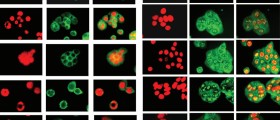
Wei Yan's grant should cover the research of approximately 5 years and this grant also represents his second major NIH grant in the last 6 years. He is continuing his research is about male infertility and so far his studies had a major impact for male fertility and contraception. His research suggests that X chromosomes (female genes ) in developing sperm cells encode numerous tiny ribonucleic acids (microRNAs) despite the fact that most of genes on the X chromosomes are suppressed. This finding suggests that these micro RNAs play a crucial role in inactivation of chromosomes and additionally in sperm formation. This study is a step forward in understanding the role of micro RNAs in the sperm production and the ability to control it. Because micro RNAs influence the control of sperm formation and production, these exact RNAs can also be one of causes of male infertility, which is yearly increasing, as well as non-hormonal male contraceptive target.
Doctor Yan will move his laboratory into the new Center for Molecular Medicine that will open later this summer. Center for Molecular Medicine will house portions of the Departments of Cell Biology, Microbiology, Pathology, Pharmacology and Physiology, and will also serve as a headquarters for the Whittemore Peterson Institute for Neuro-Immune Diseases.

















Your thoughts on this
Loading...